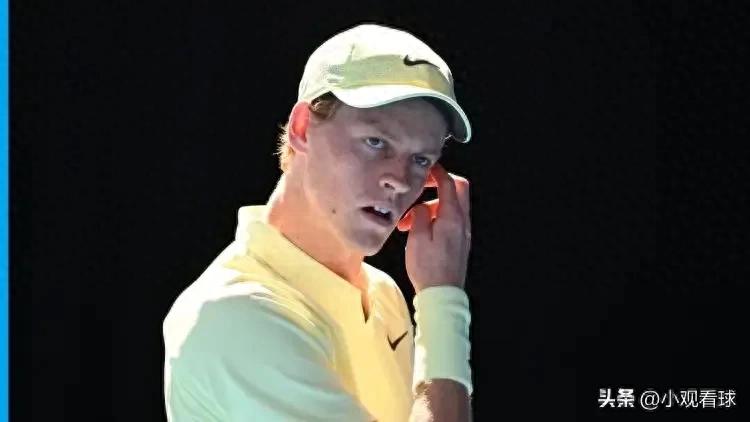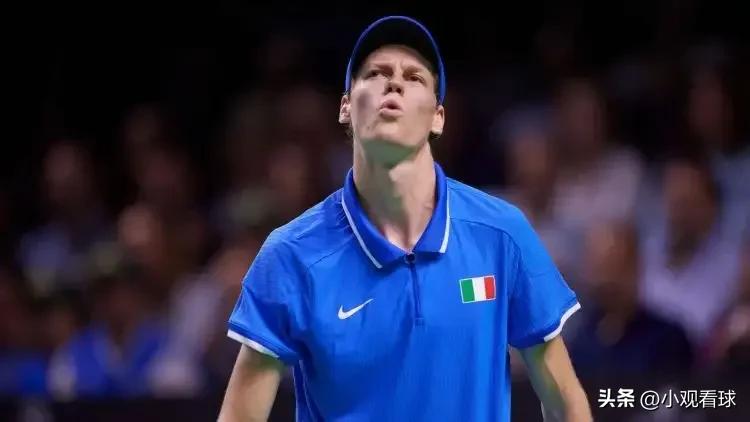Absurd "Settlement": The parties' views on the Sinner case with a "three-month ban" settlement
Regarding the outcome of the settlement of Sinner's three-month ban for testing positive for doping, there are significant differences of opinion, which can be divided into the following categories:
Criticism of athletes and professional associations
Professional Tennis Players Association (PTPA)
The PTPA, founded by Novak Djokovic and Pospisil, strongly condemned the unfair rulings, pointed out the "privilege dealing" and "systemic favoritism" in the anti-doping system, and criticized the lack of transparency and consistency of regulators (such as WADA, ATP, etc.) that led to the collapse of credibility.

Grand Slam champion Wawrinka
He said bluntly that he "no longer believes in clean sports", arguing that the verdict has weakened the purity of competitive sports.
Grand Slam champion Dmitry Medvedev
Ironically suggesting that other athletes "negotiate" with WADA, such as reducing the two-year ban to one month, implies confusion in adjudication standards.
Player Kyrgios

Questioning Sinner's use of "unknowing" excuses to evade harsher penalties argues that the move undermines fairness in tennis and concerns that younger players may emulate similar tactics.
Institutional and official positions
World Anti-Doping Agency (WADA)
Sinner's explanation that he had no intention of cheating and did not gain a competitive advantage, and that the three-month ban was based on the principle of "negligence on the part of team members." WADA stresses that this case is in line with the World Anti-Doping Code and previous jurisprudence,and withdrew the appeal against the Court of Arbitration for Sport.
ATP (Professional Tennis Federation)
The official statement supported the settlement outcome, acknowledging that Sinner had no subjective intent to violate the rules, and reminding the athletes of the need to strictly manage team behavior.
President of the Italian Tennis Association Binagi
He backed up Sinner, calling him an "innocent athlete" and emphasizing that the ruling restored Sinner's reputation and calm.
Controversy between the public and netizens
Some netizens compared the Sun Yang incident to the Sun Yang incident, sarcastically saying that the ban period can be shortened through negotiation (such as "the ban from 8 years can be changed to 8 months"), and believe that there are double standards in the WADA ruling.
Doubts about the suspension of Grand Slam tournaments (such as the French Open) and the limited practical impact of Sinner's punishment have further raised doubts about the fairness of the process.

Voices in favor of reconciliation
Sinner and his team
Acknowledging responsibility for team behaviour, emphasizing the importance of accepting a ban in order to end the legal process as soon as possible and to uphold the anti-doping system.
Some former players (e.g. Feliciano Lopez)
Believing that a longer ban does not necessarily clean up the sporting environment, Sinner has paid the price for his team's mistakes.
summary
The ruling has exposed deep-seated problems with the anti-doping system's procedural transparency and consistency of penalties. While WADA and ATP have tried to reconcile the rules and the specificity of individual cases, the skepticism of athletes and the public has highlighted the urgency of reforming the existing system. The controversy focused on the criteria for determining "unintentional violations", the limits of an athlete's responsibility to the team, and the long-term impact of the ruling on the fairness of the competition. In short, this is an "absurd reconciliation"!
[Come and see me] [Zuoyi] [Heart] [Rose]







 Links
Links
 Contact
Contact
 App
App


